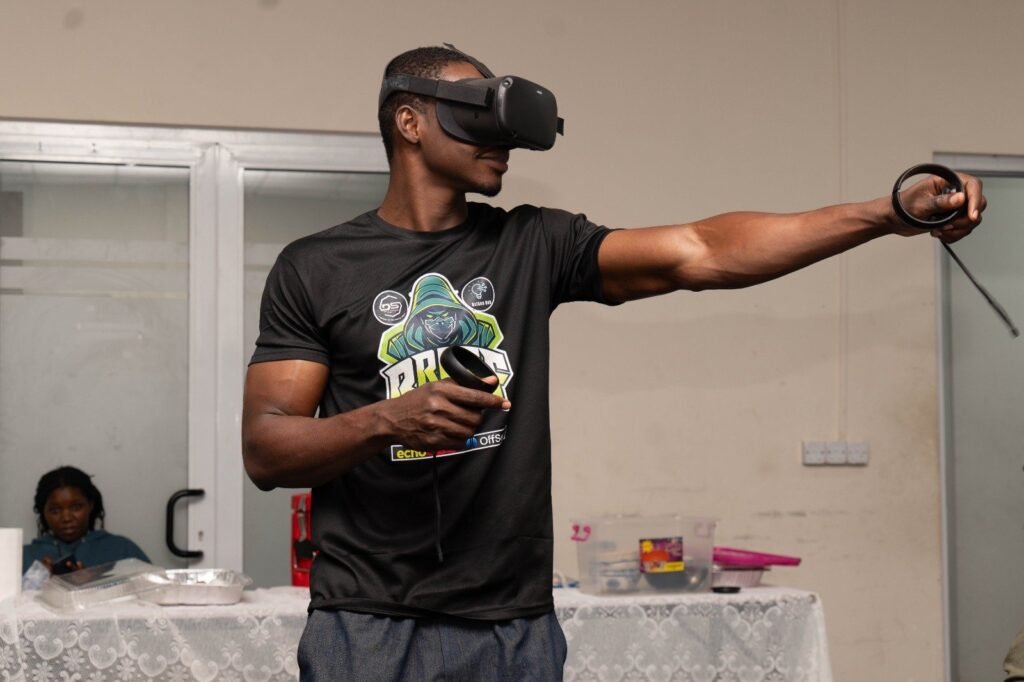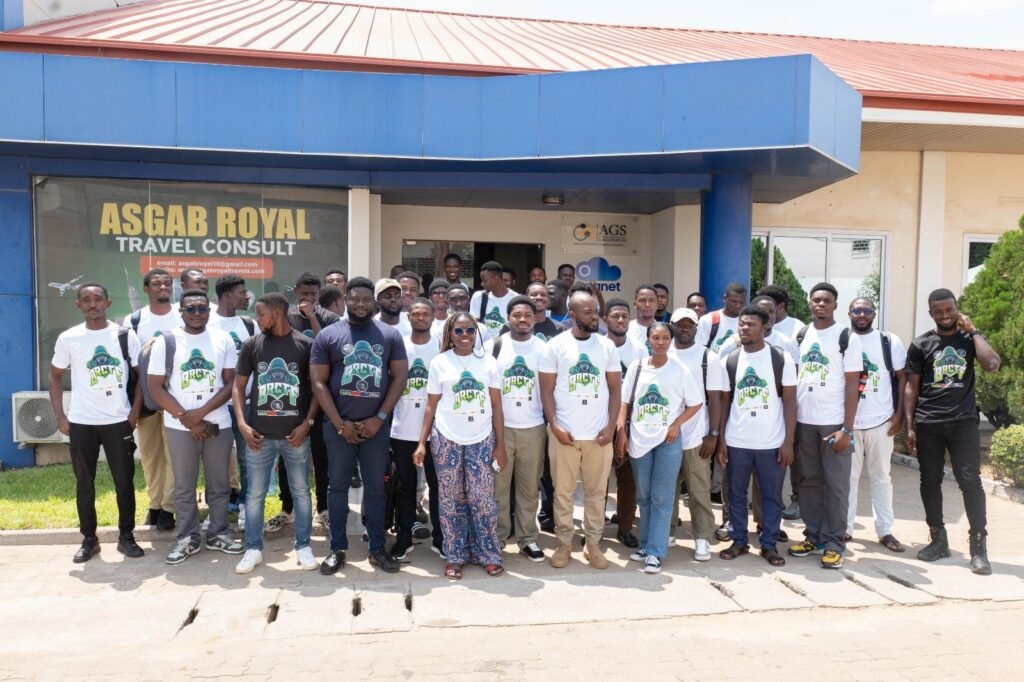Last weekend, the Accra Digital Center buzzed with energy as it hosted the second annual “Break the Code” Capture the Flag (CTF) Finals, organized by BRC TF2024. The event drew a diverse audience of tech enthusiasts, budding cybersecurity professionals, and experienced hackers, all eager to showcase their digital abilities. The tournament featured 44 participants competing in 11 teams, all engaged in a secure yet competitive hacking challenge aimed at reshaping the perception of hacking in modern society.
“The term ‘hacking’ has long been misunderstood,” noted Mr. Geven Appiah from BRC TF2024. “Most people hear ‘hacker’ and think of cybercriminals. But historically, hacking has been about creativity—finding new ways to understand and improve technology. Our goal here is to show that hacking is essential to cybersecurity. It’s about securing systems, not breaking them maliciously.”

What is CTF and Why It Matters
Capture the Flag (CTF) competitions, such as Break the Code, simulate real-world cybersecurity scenarios. Contestants encounter various security challenges that assess their expertise in areas like cryptography, network analysis, reverse engineering, and web security. The objective is for participants to “capture flags” or uncover hidden clues within a virtual environment while acquiring new strategies to counter potential cyber threats.
“Participants are encouraged to use the same skills they’d employ in a professional cybersecurity environment, but in a controlled setting,” Mr. Appiah explained. “They can break into mock systems, solve complex puzzles, and even disrupt networks without legal consequences. This type of competition allows them to hone these skills safely, which is essential given the rise in digital threats.”
The event, which first took place in 2023, expanded this year following its initial success. With the global surge in cybersecurity threats, events like Break the Code are crucial for training future defenders. “In Ghana, there hasn’t been much focus on in-person hacking competitions. We wanted to change that,” Appiah remarked, highlighting that while the format is popular internationally, it remains rare locally.

Hacking: A Vital Skill Misunderstood
Despite the negative connotations associated with the term, hacking is fundamental to cybersecurity. Within the tech community, hacking involves analyzing and dissecting systems to pinpoint vulnerabilities, as opposed to the unauthorized intrusions seen in cybercrime. “Back in the day, a hacker was someone who took technology apart to understand and manipulate it,” Appiah clarified. “It’s the same concept now but applied to computers and networks. A hacker in the cybersecurity field is a problem-solver, a digital detective.”
Hacking skills are increasingly essential as Ghana confronts rising cyber threats across various sectors, including finance and government. Mr. Appiah believes that events like Break the Code can help mitigate these threats by fostering local talent capable of safeguarding digital infrastructures. “Hacking, when used responsibly, is learning. It’s applying that knowledge to make things secure and resilient.”

Inclusive Learning and Building a Cybersecurity Community
The Break the Code competition welcomed anyone with an interest in cybersecurity, requiring no specific qualifications beyond a passion for technology. Appiah emphasized that participants from diverse backgrounds and skill levels could form teams to tackle challenges. “The main qualification is interest,” he stated. “Whoever you are, as long as you have the interest, you can create a team and participate. Our goal is to build a community around this skill set in Ghana.”
While hundreds applied, only 44 participants advanced through the online qualifiers, leading 11 teams to compete in person over two days filled with rigorous challenges. To support local talent development, BRC TF2024 offers online resources and a Discord channel for aspiring hackers to learn and engage with seasoned cybersecurity experts. “We want to keep the community engaged even outside of the competition,” Appiah pointed out, referencing resources like ecoCTF, Hack The Box, and OSCP labs for ongoing education.

Prizes and Incentives to Grow Talent
Top teams received prizes to further their cybersecurity careers. The first-place team was awarded the esteemed OSCP (Offensive Security Certified Professional) certification, recognized as a premier credential for entry-level cybersecurity proficiency. “OSCP is one of the most challenging and respected certifications out there,” Appiah remarked. “It’s costly, and we’re thrilled to offer it to our winners.”
The second-place team received three months of complimentary access to ecoCTF’s training platform, while the third-place team received an undisclosed cash prize. These rewards aim not just to provide financial benefits but also to equip participants with valuable tools to enhance their skills and expand their career opportunities. “This isn’t just about the competition,” Appiah explained. “It’s about building a skilled workforce in Ghana that can handle cybersecurity threats.”
A Future for Ethical Hackers in Ghana
Building on the success of this year’s Break the Code, BRC TF2024 aspires to continue fostering ethical hacking in Ghana, aiming to position the country as a potential cybersecurity hub in West Africa. As digital threats evolve, so does the demand for skilled cybersecurity professionals, and initiatives like Break the Code are vital in addressing that need.
“As we look ahead, we want to make Break the Code an even bigger event, perhaps attracting international participants,” Mr. Appiah shared. “Our mission is to train local talent who can safeguard not just Ghana, but the global digital ecosystem.”
Source: Ghana/Starrfm.com.gh/103.5FM/Mary Asantewaa Buabeng




